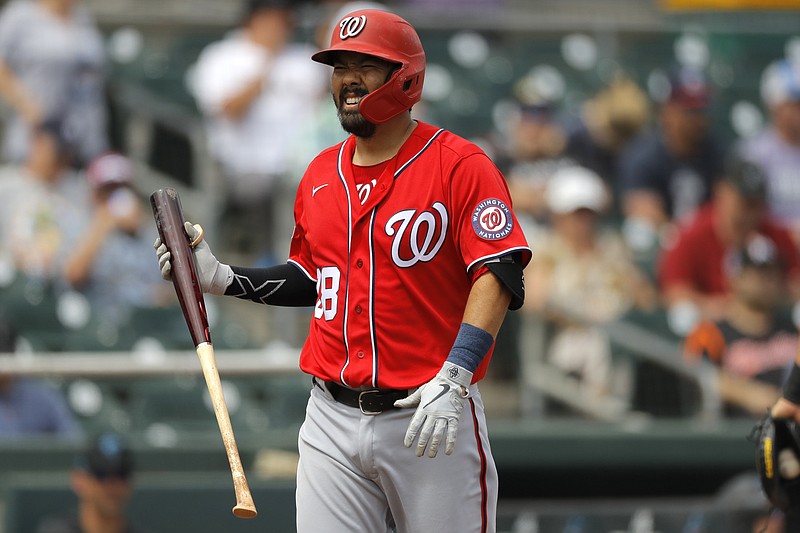Just as sure as someone could take advantage of this year's pandemic-truncated, 60-game Major League Baseball schedule to hit .400, there are bound to be players who end up with much worse statistics than they'd like.
After all, it's harder for a batter to make up for a bad week or a pitcher to mask a rough inning when there are only about two months to play instead of six.
And that could be troublesome in 2020, particularly for those who can become free agents next offseason.
"It definitely is going to go through people's heads. It's going to affect some guys. In a regular season, 162 games, you're going to have hot streaks, you're going to have extra-cold streaks, and in the end, it's all going to balance out," said catcher Kurt Suzuki of the Washington Nationals, the reigning World Series champions who host the New York Yankees to open the 2020 MLB regular season on Thursday.
"Now? ... You could go for a slump for, what, 20 games, and then you only have 40 to pull yourself together."
Think of it this way: In a typical season, a full-time position player might get about 500 at-bats, so he would need 150 hits for a .300 average. Add an 0-for-15 stretch - that batter is now 150-for-515 - and the average drops to .291.
A loose comparison: Someone with 180 at-bats in 2020 would need 54 hits for a .300 average. Tack on a 0-for-15 patch - that batter becomes 54-for-195 - and a .300 hitter transforms into a .277 hitter.
"You're going to see really good players that have really bad years. It's going to happen, not only position player-wise, but pitcher-wise," said Milwaukee Brewers outfielder Christian Yelich, the 2018 National League MVP. "You don't have that large sample size for everything to even out, so if you get off to a tough start or a bad start, you're really behind the 8 ball."
For pitchers, bounces could be more dramatic. If a pitcher with a 3.75 ERA over 60 innings were to add one five-run inning, that ERA balloons to 4.43.
Texas Rangers manager Chris Woodward spoke to his relievers about just that very thing.
"They have one bad outing in the beginning of the year and they feel like their year is over - and that's in a 162-game setting. ... If they give up four or five - you know, it could be three jam-shot hits, a weak ground ball, and they've given up five runs. You know, they feel like it takes them two months to get those stats back to where they want to," Woodward said. "So in this setting, in 60 games, they're going to almost feel the same way but almost worse."
In all seasons, players talk about not wanting to try too hard to get out of a rut, because that makes the task harder. With poor performances carrying extra weight, the mental strain could increase.
Miami Marlins manager Don Mattingly hopes the shortened season has the opposite effect. His thinking: With so few games, every club can feel as if it is in contention for the postseason, and that will dominate players' minds.
"Guys that can really hit, they know it, and they don't panic. Guys who have never really hit, they may hit early, but usually if you have a couple of bad games, they panic and start making changes and things go bad. The same with pitching. And I think the pennant race changes that," said Mattingly, a career .307 hitter as a player for the New York Yankees. "The fact everybody is in a pennant race, your stats become less important. You have a tendency to forget yourself and be more about the team."
Perhaps. Either way, Nationals manager Dave Martinez delivered a simple message to his players: Do not fret about stats.
"I hear guys rumble about, 'If I have one bad outing, my ERA's going to blow up and (it will) be tough to get it down.' Or: 'If I go 0-for-15, you know, my batting average is going to be ...'. You can't worry about those things," Martinez said. "You've really got to focus on the task at hand and go from there. That's the way I'm going to approach this year: Worry about the moment."
